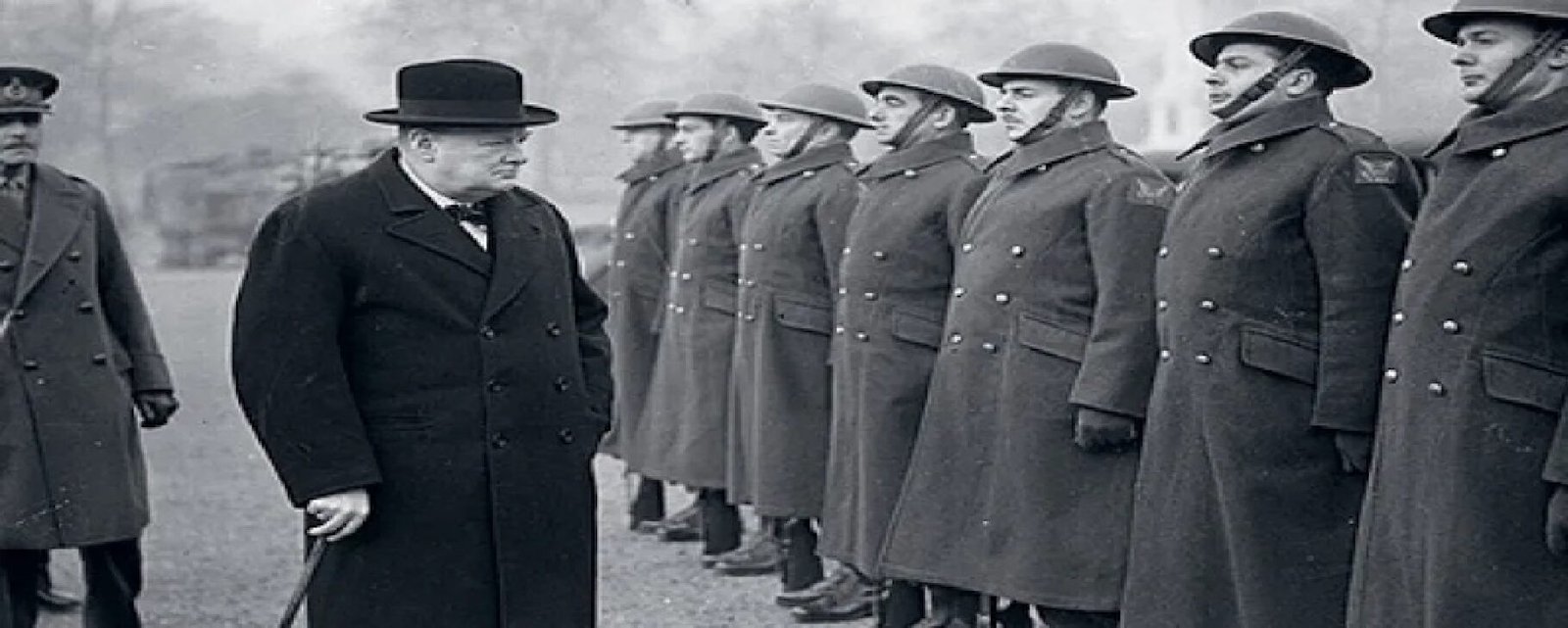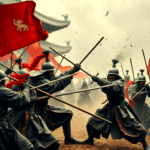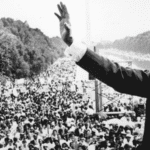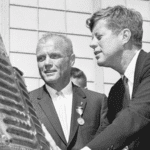Winston Churchill, a pivotal figure in modern history, is best recognized for his unparalleled roles as a British statesman and military leader. Born on November 30, 1874, at Blenheim Palace, into an aristocratic family, Churchill displayed early signs of fortitude and leadership. His political career spanned over five decades, during which he held numerous governmental positions, culminating in his terms as Prime Minister of the United Kingdom during pivotal moments in history, particularly during World War II.
Churchill’s ascent to political power was marked by his unwavering resolve and commitment to national defense. As tensions escalated in Europe during the late 1930s, he ardently warned against the approach of totalitarianism and advocated for a stronger military stance. His appointment as Prime Minister in 1940 coincided with an existential threat to the British nation, as Nazi Germany’s expansion loomed large. Churchill’s rhetoric, characterized by its emotional resonance and compelling narrative, reframed the battle against fascism as not merely a campaign for survival, but also as a moral imperative.
In addition to his role on the battlefield, Churchill’s skills as a communicator are often underscored by his iconic speeches and writings. His ability to inspire hope and mobilize the British populace during times of deep uncertainty is perhaps best illustrated through his famous addresses. These proclamations were not only instrumental in sustaining morale but also shaped the public’s understanding of the war’s significance. Churchill’s influence extends beyond his immediate actions; he helped redefine the concept of leadership in the modern age, making him a central figure in both British and world politics.
Understanding the context of Churchill’s quotes necessitates an exploration of his life and the historical circumstances that shaped his perspectives. His unwavering ideals remain a source of inspiration and reflection, echoing through time and continuing to resonate in contemporary discussions of leadership and resilience.
The Power of Speech: Churchill’s Rhetorical Style
Winston Churchill’s rhetorical style is a compelling blend of clarity, emotional depth, and motivational resonance, which greatly contributed to his effectiveness as a speaker. Rooted in his extensive background as a journalist and historian, Churchill developed a unique approach to public oratory that was particularly significant during tumultuous periods, such as World War II. His speeches were characterized by their straightforward language, enabling listeners to grasp complex ideas with ease. This clarity was essential in times of crisis when the public sought strong leadership and reassurance.
Churchill masterfully employed vivid imagery, metaphors, and rhetorical devices to engage his audience emotionally. For instance, his use of parallelism created a sense of rhythm and urgency, which made his messages more impactful. Phrases such as “We shall fight on the beaches” not only conveyed determination but also evoked strong visual associations, enhancing the overall emotional experience of his speeches. This kind of imagery was crucial, as it stirred feelings of patriotism and resilience among the British public during challenging times.
The structure of Churchill’s speeches further showcases his rhetorical finesse. He often began with a rhetorical question or a poignant statement that focused attention and set the tone for his message. By presenting clear arguments backed by historical references and factual evidence, he reinforced his credibility and authority as a leader. Additionally, the repetition of key phrases served not only to emphasize his points but also to instill a sense of hope and unity among his listeners. Churchill’s ability to connect with the populace during crises through his speeches solidified his legacy as one of the great orators of the modern era.
Contextualizing Churchill’s Famous Quotes
Winston Churchill remains a significant figure in history, particularly known for his impactful speeches and quotes that inspired a nation during turbulent times. Understanding these quotes requires delving into the historical and political contexts in which they were delivered. One of the most pivotal moments of Churchill’s leadership was the Battle of Britain, fought between July and October 1940. As Nazi Germany sought to gain air superiority, Churchill’s popular remark, “Never in the field of human conflict was so much owed by so many to so few,” sought to recognize the valiant efforts of the Royal Air Force pilots, reminding citizens of the extraordinary sacrifices made to defend their liberty.
Another crucial period was the Blitz, which involved intense bombing campaigns over British cities from September 1940 to May 1941. During this time, Churchill famously declared, “We shall fight on the beaches,” a rallying cry that communicated determination and resilience. His speeches during the Blitz emphasized British tenacity, embedding a sense of unity that was critical in bolstering morale against adversity. Churchill’s words served not only as a strategy to engage the populace but also built an enduring narrative that instilled hope amidst despair.
Furthermore, the Yalta Conference in February 1945 brought world leaders together to discuss post-war Europe. Churchill’s quotes from this meeting highlight his navigation through global diplomacy and the delicate balance of power. His famous assertion, “An iron curtain has descended across the continent,” spoke to the emerging divides of the Cold War era, showcasing his foresight regarding international relations. By contextualizing these significant events, we gain a deeper understanding of how Churchill’s words captured the spirit of resilience, determination, and the complexities of leadership during some of history’s most challenging moments.
Inspiring Resilience: Quotes from World War II
During World War II, Winston Churchill emerged not only as a political leader but also as a symbol of resilience for the British public. His speeches and writings during this challenging period were imbued with a sense of determination and bravery that resonated deeply with citizens facing adversity. One notable quote from this era is, “If you’re going through hell, keep going.” This powerful statement encapsulates Churchill’s belief in persevering through challenges, encouraging individuals to persist despite overwhelming odds.
Churchill’s rhetoric often emphasized the importance of courage in the face of despair. In another poignant quote, he remarked, “Success is not final, failure is not fatal: It is the courage to continue that counts.” This underscores the notion that resilience is rooted in the ability to keep striving, regardless of setbacks. His words served as a reminder that facing difficulties head-on is essential to overcoming them, thereby galvanizing the nation’s spirit during some of its darkest hours.
His unwavering resolve was frequently highlighted in his speeches aimed at bolstering national morale. A famous declaration, “We shall fight on the beaches, we shall fight on the landing grounds, we shall fight in the fields and in the streets,” conveys an indomitable spirit, encouraging the populace to unite in their struggle against tyranny. These resolute affirmations not only fostered a sense of community but also inspired countless individuals to summon their inner strength, reinforcing the idea that resilience can triumph over adversity.
Through his words, Churchill became an emblem of hope, his quotes echoing the determination and courage needed to endure and ultimately prevail. By instilling a sense of confidence and national pride, Churchill’s messages became a rallying cry for the British, highlighting the importance of resilience during times of unimaginable hardship.
Vision for Peace: Quotes on Diplomacy and Strategy
Winston Churchill, renowned for his exceptional leadership during World War II, also possessed a profound understanding of diplomacy and strategic planning in the realm of international relations. Many of his quotes illustrate his vision for peace and the importance of alliances in navigating the complexities of global politics, especially in the years following the war. One of Churchill’s most notable insights was, “To jaw-jaw is always better than to war-war.” This statement not only highlights his commitment to diplomatic dialogue but also emphasizes the need for constant communication among nations to prevent conflicts and foster cooperation.
After the war, Churchill recognized the vital importance of forging strong international alliances. He notably articulated the significance of unity among democratic nations as a bulwark against totalitarianism. His famous quote, “When there is a choice between the ballot and the bullet, choose the ballot,” underscores his belief in the power of democratic processes over armed conflict. This perspective was especially prescient, given the emerging tensions of the Cold War era. Churchill’s foresight regarding the ideological battle between democracy and communism revealed his understanding of the complex dynamics that would define international relations for decades to come.
Furthermore, Churchill often spoke about the necessity of strategic planning in diplomacy. He recognized that successful negotiation required not only vision but also the willingness to engage in difficult conversations. His assertion, “Success is not final, failure is not fatal: It is the courage to continue that counts,” serves as a reminder of the resilience required in international diplomacy. Such courage is essential for leaders as they navigate the often-turbulent waters of global politics, making the pursuit of peace an ongoing endeavor rather than a finite goal.
Humor and Wit: Churchill’s Lighter Quotes
Winston Churchill, known for his remarkable leadership during tumultuous times, often used humor and wit as powerful tools to connect with people. His clever remarks not only lightened the atmosphere but also served to convey serious messages in ways that resonated with his audience. Churchill had an innate ability to diffuse tension through his articulate and often humorous statements, showcasing a different dimension of his character that is frequently overlooked.
One of Churchill’s most famous quotes, “I am fond of pigs. Dogs look up to us. Cats look down on us. Pigs treat us as equals,” exemplifies his wit. This humorous observation serves as a reminder of equality and humility among different species. It also highlights Churchill’s quirky personality, allowing individuals to see his lighter side while pondering deeper reflections on human nature.
Furthermore, Churchill’s humor was evident during the challenging days of World War II. When asked about the baseness of his drinking habits, he famously replied, “I have taken more out of alcohol than alcohol has taken out of me.” This witty comeback not only provided a moment of levity but also revealed his fortitude and resilience in adversities. Such quotes often lightened the weight of war, allowing listeners to momentarily escape the burdens of their reality.
In addition to public speeches, Churchill’s humor often came through in personal correspondence. His letter writing, particularly to friends and colleagues, was peppered with clever quips and sharp observations, illustrating his ability to find brightness even in the darkest periods. These quotes and anecdotes reflect not only his intellect but also his understanding of the human condition, making them both relatable and enduring. Churchill’s legacy continues to remind us of the importance and effectiveness of using humor to navigate difficult conversations and situations.
Life Lessons: Quotes on Personal Development
Winston Churchill, a prominent figure in both politics and history, is renowned not only for his leadership during tumultuous times but also for his profound insights into human nature and personal development. His enduring legacy includes a collection of quotes that encapsulate the essence of perseverance, resilience, and the unwavering spirit of humanity. These quotes serve as timeless reminders of the importance of personal growth and strength in the face of adversity.
One of Churchill’s most famous quotes, “Success is not final, failure is not fatal: It is the courage to continue that counts,” embodies the essential belief in resilience. This perspective encourages individuals to view both success and failure as temporary states, rather than definitive outcomes. Through his experiences during the Second World War, Churchill understood that personal development often requires navigating through difficult circumstances. This quote serves as an invitation to embrace setbacks as part of the learning process, fostering a growth mindset that is critical to self-improvement.
Churchill’s assertion that “If you’re going through hell, keep going” further underscores his belief in the necessity of perseverance. Life inevitably presents challenges, and his words inspire individuals to push through hardships rather than succumb to them. Such insights remind us that perseverance can lead to personal evolution, reinforcing the idea that enduring the storms of life is essential for achieving growth and understanding our own potential.
Additionally, Churchill emphasized the importance of character development with his quote, “You must look at facts, because they look at you.” This statement encourages individuals to confront reality, fostering accountability and authenticity in personal development. By acknowledging one’s own circumstances and taking decisive steps towards improvement, one can cultivate a stronger sense of self and purpose.
In conclusion, Winston Churchill’s quotes offer valuable lessons in personal development, emphasizing the significance of resilience, perseverance, and self-awareness. Their relevance remains potent in today’s fast-paced world, where individuals strive to navigate their own journeys of growth and fulfillment.
Enduring Legacy: The Impact of Churchill’s Quotes
The quotes of Winston Churchill have transcended time, influencing various domains such as politics, public speaking, and leadership. His eloquence and ability to convey profound thoughts succinctly have made his words resonate with generations. The eloquence found in his quotations, from stirring calls to action to reflections on human experience, continues to inspire leaders and laypersons alike. Churchill’s ability to encapsulate complex ideas in relatable, memorable phrases has rendered his quotes timeless.
In the realm of politics, Churchill’s sayings often highlight the importance of resilience and courage in facing adversity. Leaders across the world frequently invoke his remarks to motivate themselves and their constituents during challenging times. Churchill’s famous admonition that “success is not final, failure is not fatal: It is the courage to continue that counts,” serves as a guiding principle for political figures navigating crises. This sentiment remains prevalent in contemporary discourse, empowering leaders to maintain steadfastness in the face of uncertainty.
Moreover, his impactful speeches have left an indelible mark on public speaking. Churchill’s mastery of rhetoric is evident in his strategic use of repetition, parallelism, and vivid imagery, principles that continue to inform effective communication techniques today. Public speakers and eminent figures often draw inspiration from Churchill’s style, adapting his powerful rhetoric to invigorate their own messages. The phrase “we shall fight on the beaches,” for instance, is universally recognized, representing unwavering resolve that has been echoed in various leadership contexts, and exemplifies his influence on oratory.
In summary, Winston Churchill’s quotes carry a legacy that extends into modern political and social arenas. His words, rich with wisdom and conviction, continue to motivate and guide leaders, shaping our understanding of courage and resilience. Through the timeless nature of his wisdom, individuals are reminded of the enduring impact of inspiring language in guiding human endeavor.
Conclusion: The Timeless Wisdom of Winston Churchill
Winston Churchill’s quotes serve as profound reflections of his insights on life, leadership, and resilience. Each phrase encapsulates a wealth of experience and a deep understanding of the human condition. The key takeaways from his famous quotes emphasize the importance of perseverance, courage, and the ability to adapt to changing circumstances. His words resonate powerfully, reminding us that challenges often forge character and that victory is best savored after surmounting adversity.
Churchill’s wisdom extends beyond the historical contexts in which he spoke. His observations on human nature, governance, and society remain deeply relevant in contemporary discourse. For instance, Churchill once asserted that “courage is rightly esteemed the first of human qualities.” This declaration highlights that the foundation of effective leadership lies in the willingness to confront difficulties head-on, an ethos that contemporary leaders can look to emulate as they navigate the complexities the modern world presents.
Moreover, the universality of Churchill’s messages encourages introspection and personal growth. His quotes serve as a reminder to cultivate resilience in our own lives. In an era characterized by rapid change and uncertainty, revisiting Churchill’s perspectives can provide solace and motivation. His belief that “success is not final, failure is not fatal: It is the courage to continue that counts” inspires individuals to view setbacks as stepping stones rather than obstacles.
As we reflect on the enduring nature of Churchill’s wisdom, it becomes evident that his words continue to inspire new generations. By drawing lessons from his thoughts, we are encouraged to confront challenges with resolve and foster a spirit of optimism and determination in our lives. Embracing Churchill’s insights can empower us to contribute positively to our communities and face the future with confidence.
More Historical Quotes To Inspire You
- The Art Of War Quotes – Sun Tzu
 Introduction to The Art of War The Art of War is an ancient Chinese military treatise attributed to Sun Tzu, a military strategist and philosopher who is believed to have lived during the Eastern Zhou period of ancient China, around the 5th century BCE. This seminal work has transcended its original context and remains highly… Read more: The Art Of War Quotes – Sun Tzu
Introduction to The Art of War The Art of War is an ancient Chinese military treatise attributed to Sun Tzu, a military strategist and philosopher who is believed to have lived during the Eastern Zhou period of ancient China, around the 5th century BCE. This seminal work has transcended its original context and remains highly… Read more: The Art Of War Quotes – Sun Tzu - I Have A Dream – Martin Luther King
 Dr Martin Luther King’s I Have A Dream Speech is rightly recognised as a pivotal moment in The Civil Rights Movement. What is not widely known is that the I Have A Dream section was not in the speech he was meant to give.
Dr Martin Luther King’s I Have A Dream Speech is rightly recognised as a pivotal moment in The Civil Rights Movement. What is not widely known is that the I Have A Dream section was not in the speech he was meant to give. - JFK Famous Quotes
 John F. Kennedy, the 35th President of the United States, served from January 1961 until his untimely death in November 1963. His presidency is often remembered for its significant impact on American society, as well as for the pivotal historical events that unfolded during this period. Kennedy’s leadership style was characterized by a commitment to… Read more: JFK Famous Quotes
John F. Kennedy, the 35th President of the United States, served from January 1961 until his untimely death in November 1963. His presidency is often remembered for its significant impact on American society, as well as for the pivotal historical events that unfolded during this period. Kennedy’s leadership style was characterized by a commitment to… Read more: JFK Famous Quotes - William Shakespeare – Linguistic Genius
 William Shakespeare, often celebrated as the most prominent figures in English literature, made an indelible mark on the evolution of the English language. Born in 1564 amidst the Renaissance, a period of profound change and creativity, he contributed significantly to the literary and linguistic landscape of his time. The English language during Shakespeare’s lifetime was… Read more: William Shakespeare – Linguistic Genius
William Shakespeare, often celebrated as the most prominent figures in English literature, made an indelible mark on the evolution of the English language. Born in 1564 amidst the Renaissance, a period of profound change and creativity, he contributed significantly to the literary and linguistic landscape of his time. The English language during Shakespeare’s lifetime was… Read more: William Shakespeare – Linguistic Genius - Winston Churchill Famous Quotes
 Winston Churchill, a pivotal figure in modern history, is best recognized for his unparalleled roles as a British statesman and military leader. Born on November 30, 1874, at Blenheim Palace, into an aristocratic family, Churchill displayed early signs of fortitude and leadership. His political career spanned over five decades, during which he held numerous governmental… Read more: Winston Churchill Famous Quotes
Winston Churchill, a pivotal figure in modern history, is best recognized for his unparalleled roles as a British statesman and military leader. Born on November 30, 1874, at Blenheim Palace, into an aristocratic family, Churchill displayed early signs of fortitude and leadership. His political career spanned over five decades, during which he held numerous governmental… Read more: Winston Churchill Famous Quotes - Crossing the Rubicon: The Moment That Changed History
 The period leading up to Julius Caesar’s crossing of the Rubicon River in 49 BC was marked by significant political and social upheaval in Rome. The Roman Republic was experiencing profound tensions, primarily driven by power struggles between the Senate and prominent military leaders. Julius Caesar, having enjoyed great military success in Gaul, emerged as… Read more: Crossing the Rubicon: The Moment That Changed History
The period leading up to Julius Caesar’s crossing of the Rubicon River in 49 BC was marked by significant political and social upheaval in Rome. The Roman Republic was experiencing profound tensions, primarily driven by power struggles between the Senate and prominent military leaders. Julius Caesar, having enjoyed great military success in Gaul, emerged as… Read more: Crossing the Rubicon: The Moment That Changed History






